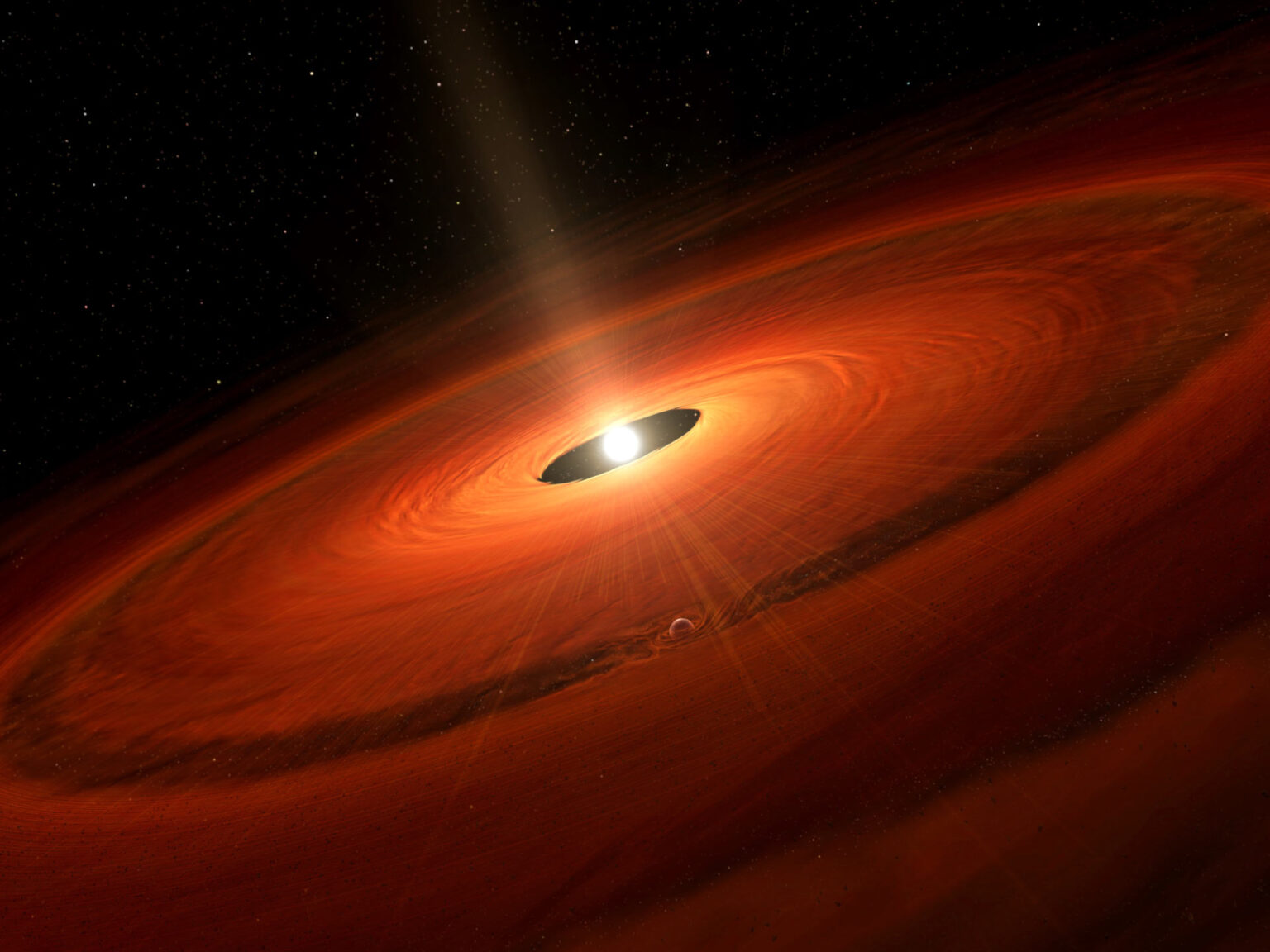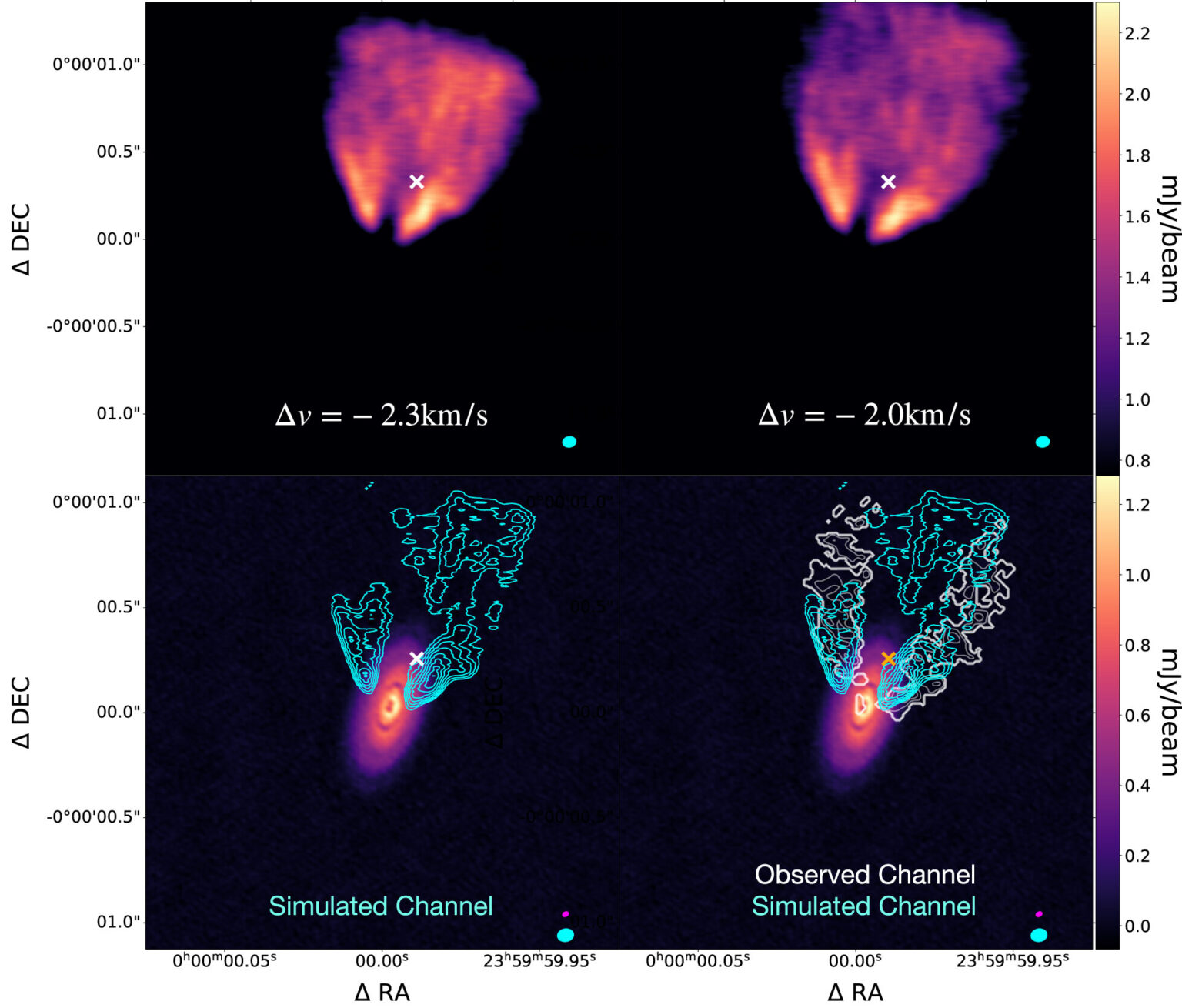Artificial intelligence, created thanks to machine learning algorithms, was able to find a newborn planet in the protoplanetary disk of a star. Scientists tested this discovery using standard methods and made sure that the computer evaluated everything correctly.

Artificial intelligence finds an exoplanet
Scientists from the University of Georgia have confirmed the existence of a previously unknown exoplanet. But they are not its discoverers, but artificial intelligence, a machine learning tool. Scientists created it based on knowledge about the laws of the formation of large bodies in protoplanetary disks.
The discovery was made when processing images of a star with a protoplanetary disk, previously studied by specialists and decided that there was no planet there. However, artificial intelligence still detected signs of a large body.
Then the scientists re-examined the system and confirmed that a certain area of the disk had characteristic brightness fluctuations, which were usually considered a sign of a planet. In the future, its presence was fully confirmed.

Why is the machine looking for new worlds better than humans
Protoplanetary disks are gas-dust clouds that exist around young stars. They are rapidly rotating in the same plane and numerous particle collisions occur in them. They stick together and eventually form planets.
However, the protoplanetary disks and newborn celestial bodies shine with the reflected light of their own star. Therefore, it is very difficult to distinguish them. Scientists focus mainly on the presence of continuous gaps and individual thickenings that form at Lagrange points.
Of course, all this requires many hours of painstaking work, from which researchers get tired and are able to miss something important. Therefore, artificial intelligence comes to help them, which does not have such problems.
According to phys.org
Follow us on Twitter to get the most interesting space news in time
https://twitter.com/ust_magazine

